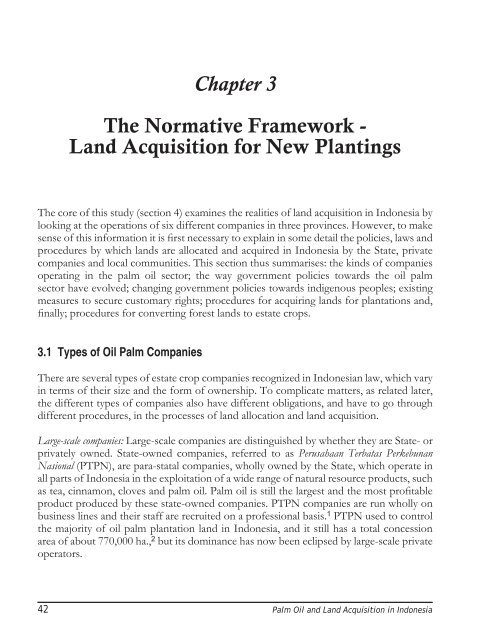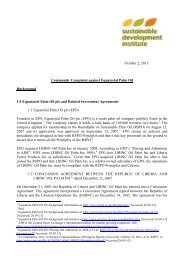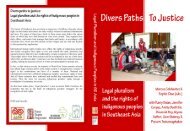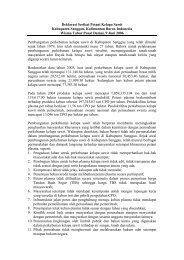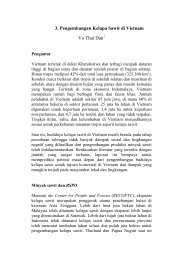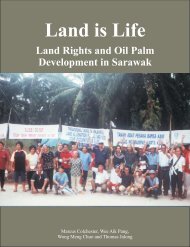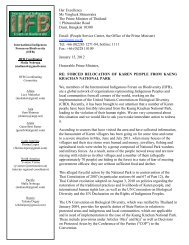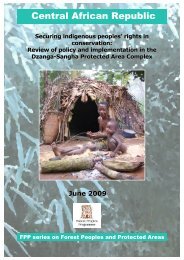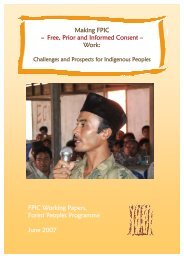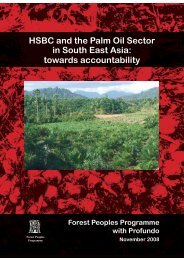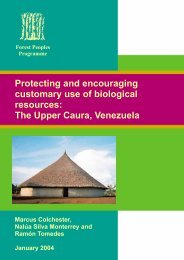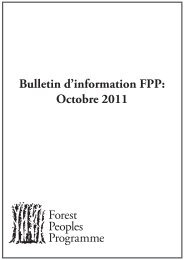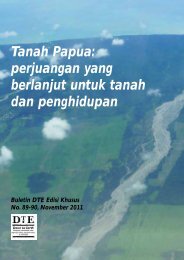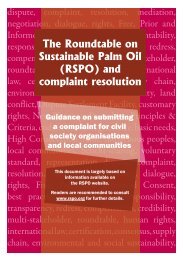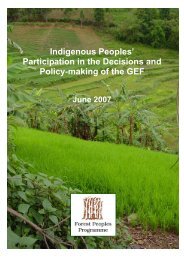Final Land Acquisition Book English.indd - Forest Peoples Programme
Final Land Acquisition Book English.indd - Forest Peoples Programme
Final Land Acquisition Book English.indd - Forest Peoples Programme
Create successful ePaper yourself
Turn your PDF publications into a flip-book with our unique Google optimized e-Paper software.
Chapter 3<br />
The Normative Framework -<br />
<strong>Land</strong> <strong>Acquisition</strong> for New Plantings<br />
The core of this study (section 4) examines the realities of land acquisition in Indonesia by<br />
looking at the operations of six different companies in three provinces. However, to make<br />
sense of this information it is first necessary to explain in some detail the policies, laws and<br />
procedures by which lands are allocated and acquired in Indonesia by the State, private<br />
companies and local communities. This section thus summarises: the kinds of companies<br />
operating in the palm oil sector; the way government policies towards the oil palm<br />
sector have evolved; changing government policies towards indigenous peoples; existing<br />
measures to secure customary rights; procedures for acquiring lands for plantations and,<br />
finally; procedures for converting forest lands to estate crops.<br />
3.1 Types of Oil Palm Companies<br />
There are several types of estate crop companies recognized in Indonesian law, which vary<br />
in terms of their size and the form of ownership. To complicate matters, as related later,<br />
the different types of companies also have different obligations, and have to go through<br />
different procedures, in the processes of land allocation and land acquisition.<br />
Large-scale companies: Large-scale companies are distinguished by whether they are State- or<br />
privately owned. State-owned companies, referred to as Perusahaan Terbatas Perkebunan<br />
Nasional (PTPN), are para-statal companies, wholly owned by the State, which operate in<br />
all parts of Indonesia in the exploitation of a wide range of natural resource products, such<br />
as tea, cinnamon, cloves and palm oil. Palm oil is still the largest and the most profitable<br />
product produced by these state-owned companies. PTPN companies are run wholly on<br />
business lines and their staff are recruited on a professional basis. 1 PTPN used to control<br />
the majority of oil palm plantation land in Indonesia, and it still has a total concession<br />
area of about 770,000 ha., 2 but its dominance has now been eclipsed by large-scale private<br />
operators.<br />
42 Palm Oil and <strong>Land</strong> <strong>Acquisition</strong> in Indonesia


